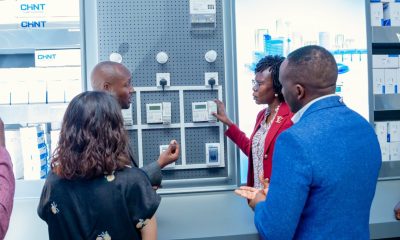Ramathan Ggoobi
Mr President, stop dishing out money!
You need to ask yourself: What constrains Ugandans and make them unable to make money instead of waiting to beg me? That’s where you should spend the money!
Nearly on a daily basis now, every time I open a newspaper or settle in my living room to watch news on television, I read or see our president handing someone or a group of people a big brown envelope containing, in most cases, unspecified amount of money.
This is not the first time we have seen presidents in Africa making cash donations. It is also not the first time to see you, Mr President, donating cash. Since 1986, you have built your political success in part on the idea that you are a generous leader who always held the plight of the poor at your heart, and a moderate politician who never sought the politics of harm and violence common among African ruling presidents.
Indeed at the beginning of your leadership, a small envelope handed to a bishop or head teacher of some rural church or primary school was understandable. It was a gesture of a well-intentioned leader constrained by a paucity of resources to improve the well being of his subjects.
As time went on, however, the size of the envelope grew to A4 to A3 and in April this year to a sack! The envelope that used to contain a million shillings as condolence contribution (mabugo) to a grieved family has been replaced by one containing Shs. 100 million purportedly to serve the same purpose! It is a culture of Africans to suspect those who are extremely generous.
Mr. President, let me tell you upfront: you can no longer fool anyone that you mean well with those fat envelopes and sacks of money. Ugandans now know that what you are doing lately is no longer generosity; it’s patronage. You have really hit a raw nerve among some people who believe in morals, ethics and responsible humanity, let alone legitimate leadership. I know in politics matters of morals and legitimacy tend to be secondary but yours is politics taken too far.
Are you buying legitimacy to lead?
Earlier this year, you handed a sack of Shs250m notes to a partisan group of youth in Busoga. At a function organised to celebrate the Youth Day of sorts last week, you announced a grand donation of Shs265 billion to the youth, despite the fact that it is not accommodated anywhere in the national budget read just a month ago.
The Deputy Secretary to the National Treasury said with visible frustration this week, “As the Ministry (of Finance), we also learnt about it in the papers. We don’t have a budget for it.”
Two years ago you okayed a transaction in which businessman Hassan Basajjabalaba was “compensated” a whooping Shs 142 billion of taxpayers’ money for the loss of his Shs. 4 billion investments in Owino, Shauriyako, and Nakasero markets. This means that for every 1 billion shillings Basajjabalaba had invested, he got a return of Shs. 36 billion! Before this, you had directed Bank of Uganda to give the same lucky businessman some Shs. 20 billion shillings to clear his Standard Chartered bank debts.
In our memories we also have moments when you were captured in television pictures handing over cheques worth $100,000 (Shs. 256 million) to foreign universities in Kenya and Tanzania, and another one of similar amount in Rwanda.
Right now, you are on a countrywide tour, dishing out hundreds of millions of public money to selected individuals and groups. Mr President, let me say this bluntly: the rate at which you dish out money to buy Ugandans justifies what some opposition politicians have said before, that you lost the legitimacy to lead this country.
It’s a form of corruption
Because most Ugandans are no longer happy with your continued stay, you have resorted to bribing them. These days you are actively buying support! Mr. President, are you still proud to be president of Uganda? Lately, every time you come out to address Ugandans, including functions as important as parliamentary address, you are constantly heckled. Don’t you ask yourself why? Don’t you care anymore? At all?
You often tell us how you are committed to fighting corruption. The rhetoric is often centred on zero tolerance to corruption. However, your profligacy with public money during political tours could be fueling graft in the country. Using public money at your disposal to build patronage networks is itself a form of corruption. This is public/taxpayers money that you dish out often in sealed envelopes. So it’s hard for those tasked with the duty of auditing public resources to tell how much you have donated.
No wonder the State House budget is swelling by the minute. In the new Financial Year (FY), it is indicated that your office and residence will cost the country Shs 205 billion. The budget for State House last FY was only Shs 58 billion. What has caused this obscene rise in the money required to run the State House? Of course these cash handouts.
Economic implications of cash handouts
Mr President, I have heard you defending cash donations suggesting that they are intended to help youth and the poor to access some capital to pull themselves out of poverty. Have you bothered to find out how effective these cash handouts would be as an anti-poverty effort or an economic stimulus?
Studies and experiences the world over have clearly shown that this program is a shortsighted plan that exacerbates the government’s budget deficit. Whoever thinks they can use cash handouts to fight poverty is a for-the-moment kind of thinker.
Your obsession with cash handouts appears as an attempt to purchase economic activity in some parts of the country with taxpayers’ money, or at times with borrowed money. Empirical evidence neither supports this. Economists who have studied consumers’ use of cash donations have found that “households spent 20 – 40 percent of their donations on non-durable goods during the three-month period in which their donations were received and roughly another third of their handouts during the subsequent three-month period.”
If a similar formula were to hold in your cash donations, Mr. President, the Shs. 250 million you gave to Busoga youth in April, for example, would lead to some Shs. 158 million in retail spending over a six-month period, or about Shs. 26 million per month. This implies that if you go back to Kaliro (Busoga) in 9 months time, chances are that you will find the very youth you handed that infamous white sack broke. So prepare another bag on your return tour. But it seems our memory is either faulty or works in a selective mode, because this is exactly what happened during the Entandikwa scheme of the mid-1990s.
What needs to be done?
Mr. President, the question you and those who advise you to stack money in envelopes and sacks should seek to address is: how do we create good jobs and productive work for the youth and other people of Uganda?
Another way of asking this question is: what is holding young people back? What constrains Ugandans and make them unable to make money instead of waiting to beg me?
I have heard several agencies, government departments and NGOs guessing out some answers to that question: the youth lack skills, or they lack money to invest.
Development economics has a slightly different answer. Investment in education and health is the only sure way of raising returns in poor countries. Evidence shows, for example, that wages go up by 10 – 15% with every extra year of schooling. Although this is a long term investment, it is the only sure way to sustainably fight poverty out of a country.
However, in Busoga where you handed the youth the sack of cash to use in their SACCO to fight poverty among themselves, those very youth buy expired medicines from kiosks and these medicines are prescribed by semi-illiterate-self-styled medical workers and they cannot even keep proper accounts of their SACCO because they went to school in an area where the best student gets third grade in national examinations!
Instead of going around the country dishing out money, pay teachers and nurses a living wage, build more teacher training and nursing schools, fix the feeder roads in every village of Uganda, build dispensaries and stock medicines, extend safe-drinking water to every parish, buy farm implements and high-yielding seed for all the poor to modernize farming, construct more electric power dams to electrify the entire country. This is what will sustainably kick poverty out of Uganda.
Mr. President, of course the returns to investments in human development that I suggest above won’t come during your tenure. They will come much later. But I thought legacy is much more significant than the handclaps and hugs that you earn at the cash handover ceremonies, as well as the votes that follow! At least the last time I checked, heroic- or liberation leaders shared that view.
Comments


























